Marin Falier came from one of the most ancient noble families of Venice. In September 1354, the Consiglio Maggiore elected him doge of the Venetian Republic.
Only seven months later, they tried him for treason and had him executed.
The accusation was that he had orchestrated a coup against the state. Tried for treason, he was decapitated in the courtyard of the Palazzo Ducale on April 17th, 1355, and buried in an unmarked grave.
Early life
Marin Falier was born around 1274, but little is known about his youth.
As an adult he held several important posts. He was one of the leaders of the Council of Ten in 1315, and involved in the settling of the scores after the failed Tiepolo conspiracy of 1310.
In the mid-1320s he was in Negroponte (now Euboea in Greece) as ambassador and commander of the Venetian troops there.
He was back in Venice in the late 1320s, occupied with the affairs of the Council of Ten.
In the 1330s he was commander of the Venetian fleet in the Black Sea and Constantinople, protecting the merchants trading on Tanais.
Doge Marin Falier
Falier became doge on September 11th, 1354.
The Consiglio Maggiore initially kept the decision secret because Falier was away on a diplomatic mission to the pope in Avignon. He returned on October 5th, at which time his election became public.
He was in his seventies when elected. This was not unusual, as the election was for life.
It was a turbulent time. Venice was at war with Genoa while the Holy Roman emperor Charles IV tried to mediate, and internal politics were contentious.
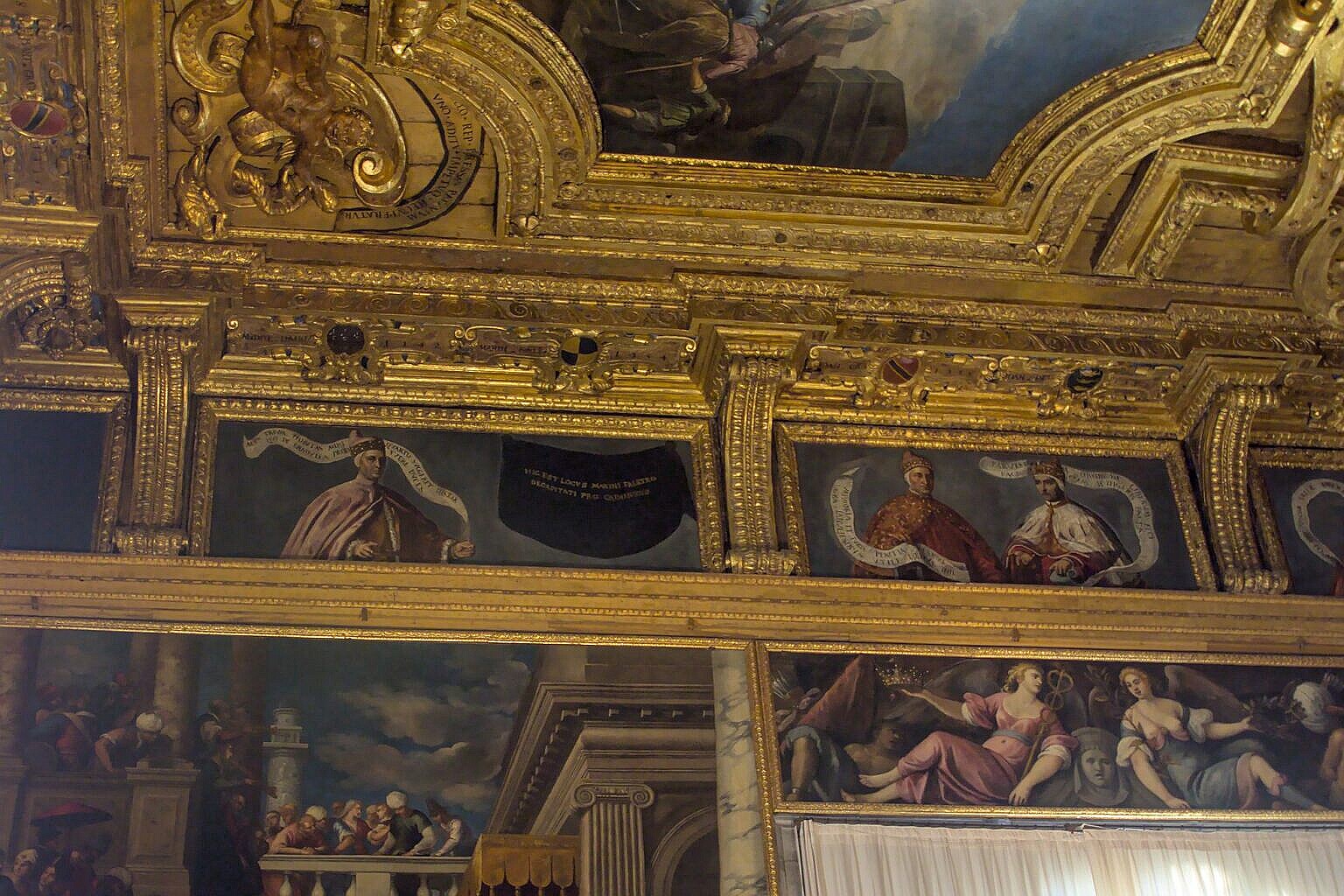
Coup and Downfall
The traditional explanation of the coup was one of personal offence.
At a party in the Palazzo Ducale for the carnival in 1355 a young nobleman made advances on either the young wife of the doge or one of her ladies in waiting. The doge complained, and the young man reacted by writing a personal offence on the back side of the doge’s chair in the hall.
Marin Falier with the beautiful wife – he maintains her while others enjoy her.
The offence could not go unpunished. However, the leniency of the sanctions left Falier dissatisfied, and he turned angry at the rest of the Venetian nobility.
With a small group of accomplices, Falier tried to organise a surprise attack on the rest of the Venetian nobility for the early morning of April 15th. The coup planning was sloppy, and soon somebody talked.
As soon as they learned about the plans, the noble families opposing Falier went down to the Palazzo Ducale. Here, sword in hand, they apprehended Falier and his accomplices.
While this is the normal story, it is not the only possible interpretation of the events.
It could have been a straight power grab by a group around the doge, using the alleged offence against Falier and his wife as a pretext. The intent was to turn Venice into a signoria just like it had happened in many other Northern Italian cities.
Alternatively, we can see it the other way around, as a coup by a faction of the nobility, to get rid of him.
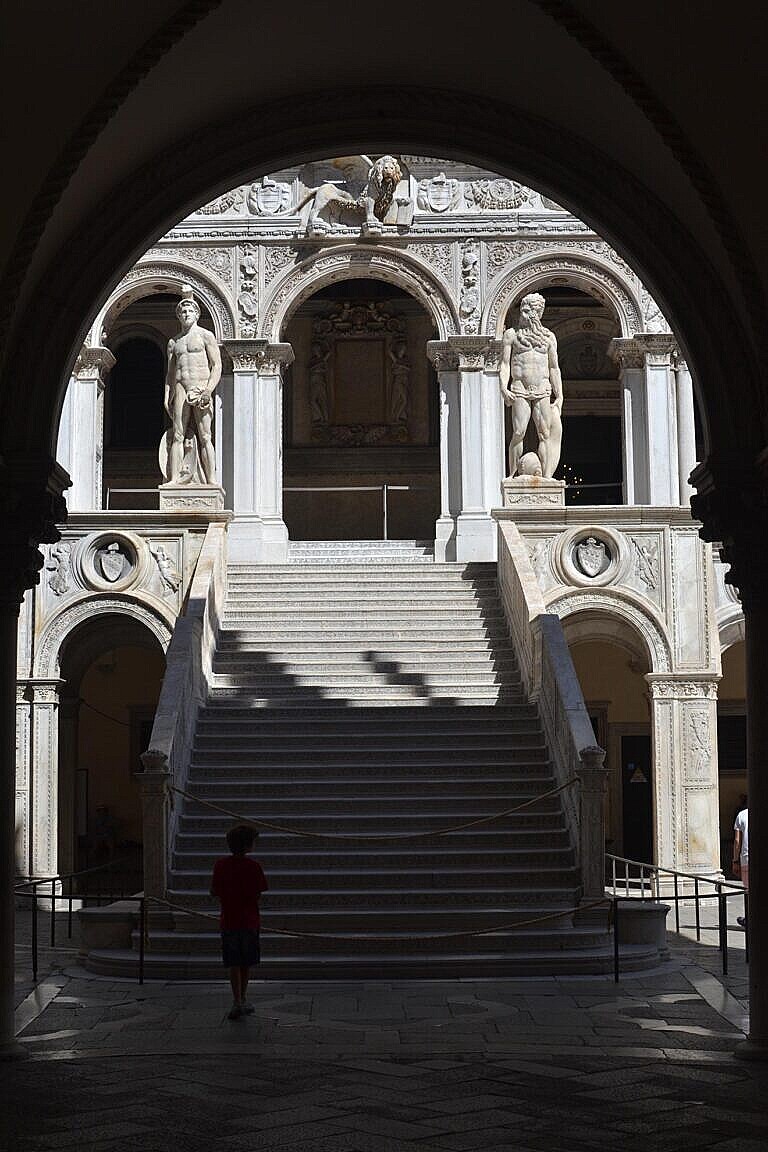
Death and Burial
The execution of the accomplices of Falier happened in public between the two columns St Mark’s square, as customary.
Marin Falier was taken to the foot of the stairs in the courtyard of the Palazzo Ducale. Here he was stripped of all the symbols of the dogeship, and beheaded in front of much of the Venetian nobility.
The Falier family, whose palace was (and is) in Campo SS Apostoli, had their family burials in the church of SS Giovanni e Paolo. It is one of the most important churches of the city, and the location of the burial ceremony of the doges.
Marin Falier was buried there, but in an unmarked sarcophagus.
When fire damaged the chapel in the early 19th century, the workers discovered the sarcophagus The skeleton was placed in the tomb, with the head between the legs.
Related articles
- The Doge
- Doges of Venice
- Tombs of the doges
- Consiglio dei Dieci — ASV Indice
- Consiglio dei Dieci — Lessico Veneto
- However, we’ll make another — newsletter
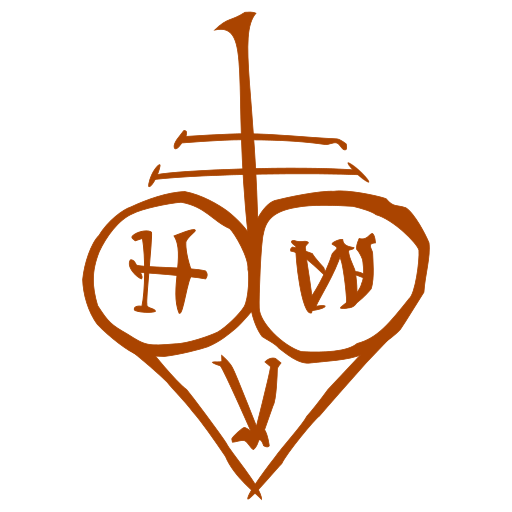
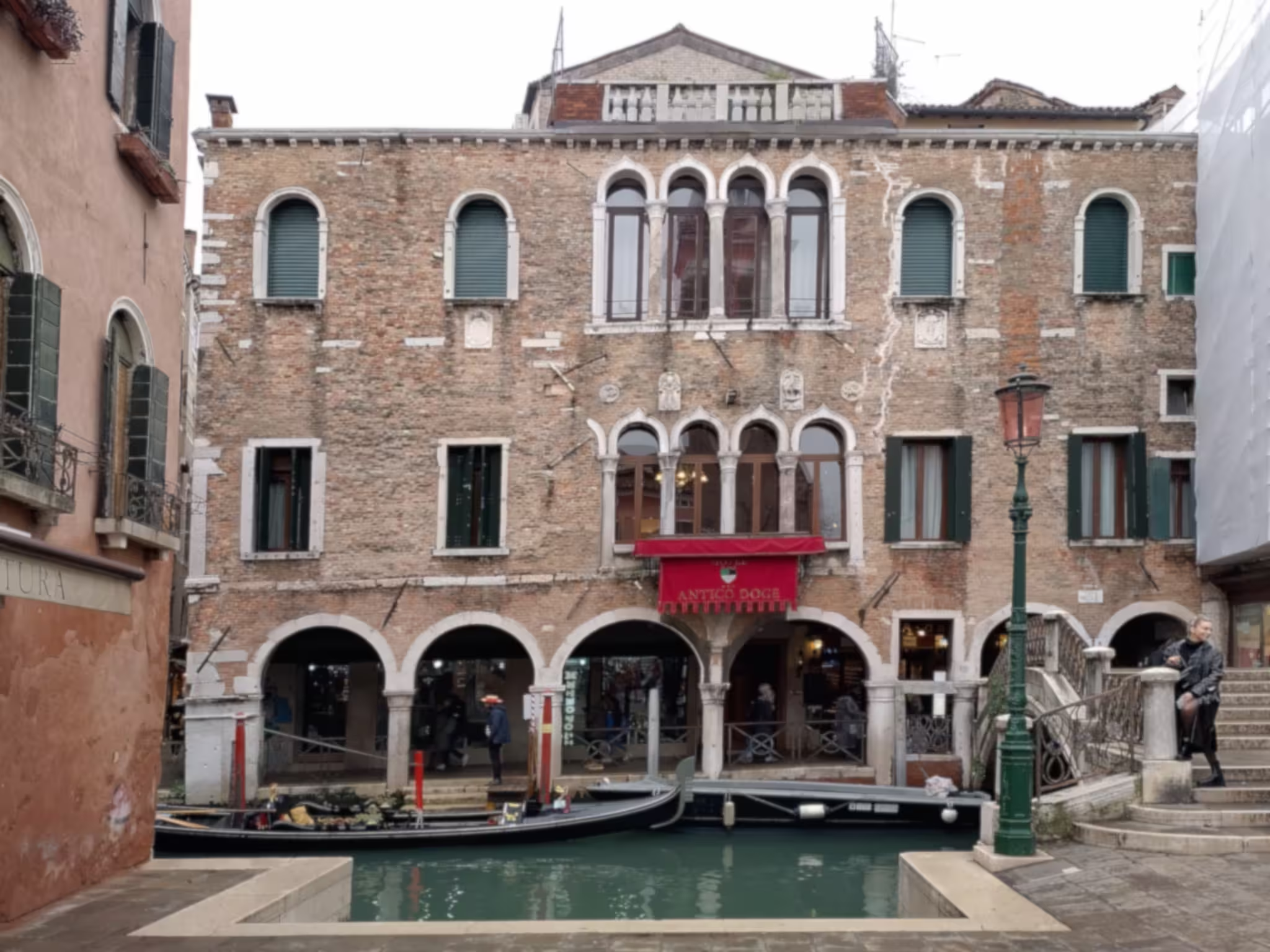
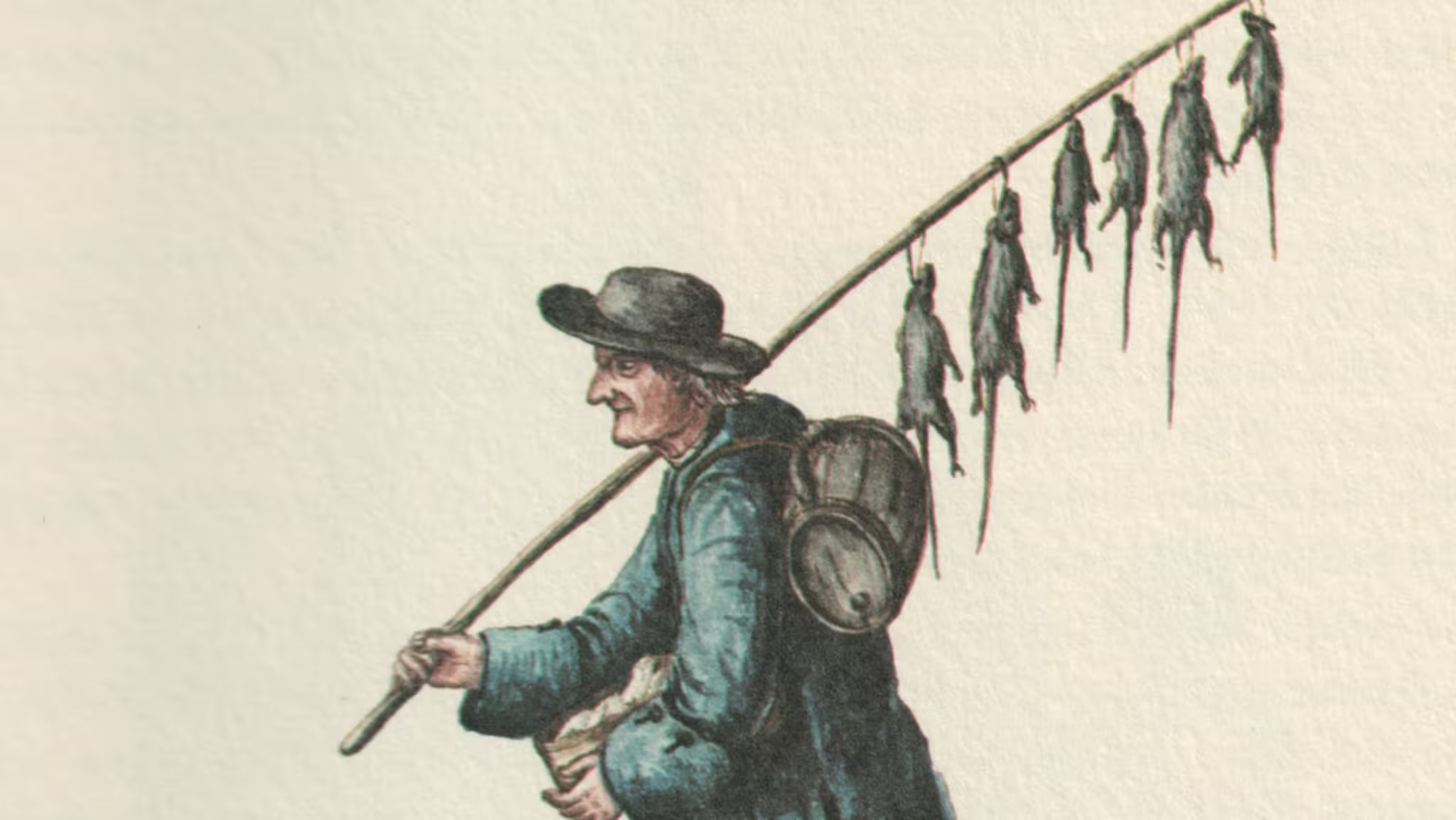
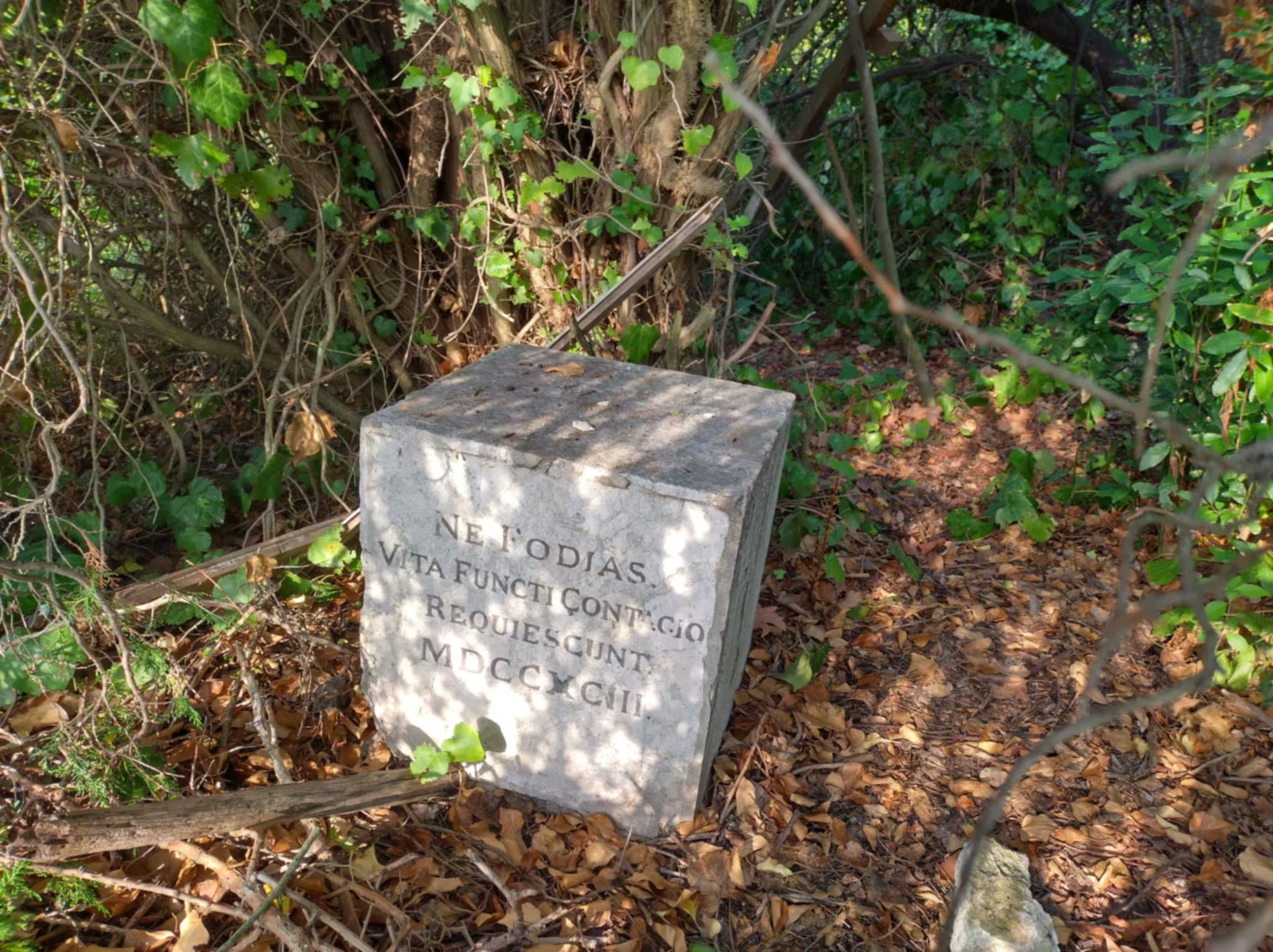
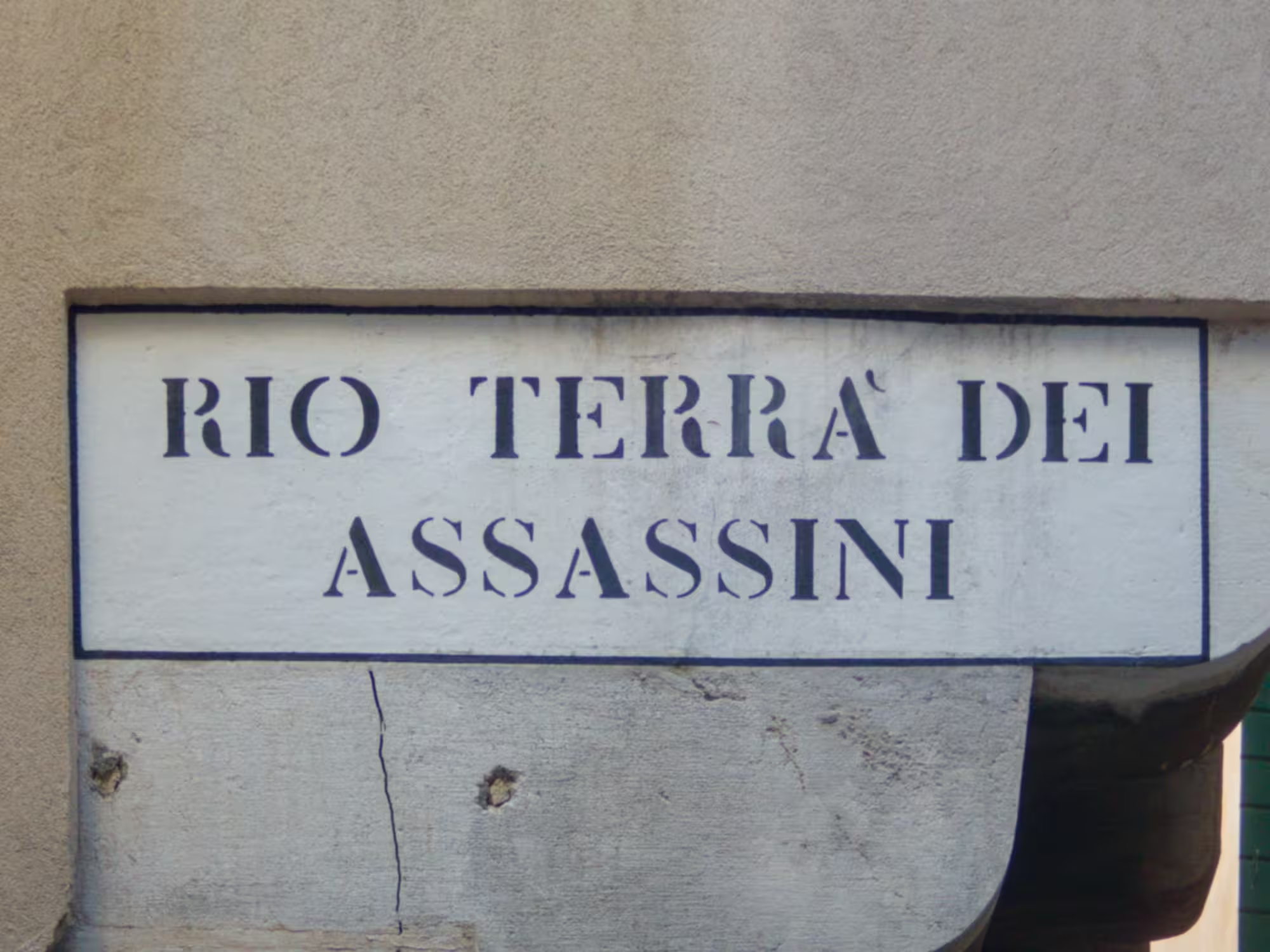
Leave a Reply